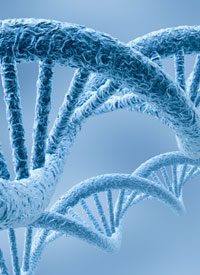
According to Times Online for December 17, researchers led by Professor Mike Stratton of the Cancer Genome Project at the Wellcome Trust Sanger Institute near Cambridge, England, have cracked the genetic codes of two human cancers: small-cell lung cancer and malignant melanoma, the deadliest form of skin cancer.
Very thorough genetic maps have been made of every DNA mutation in the tumors of two patients suffering from these cancers. The knowledge gained could revolutionize cancer treatment, leading to personalized therapy that can rectify the genetic defects. This has been described as the most important milestone in cancer research in over a decade.
With data from the genomes in hand, it may be possible for scientists to develop drugs to target the DNA glitches that lead to cancer, opening new avenues for prevention. Cancers that do develop could be diagnosed and treated by their genetic profiles rather than by treatments now commonly used that have more harmful side effects. Scientists even predict that by approximately 2020, it may become standard practice for cancer patients to undergo genetic analysis so that treatment can be customized to the specific defects found.
“These catalogues of mutations are telling us about how the cancer has developed, so they will inform us on prevention. They tell us about all the processes which are disrupted in cancer cells, which we can try to influence through our treatments,” said Professor Stratton. “So this is a really fundamental moment in the history of cancer research. I can envisage a time a decade or more hence when these catalogues will become routine, and influential in selecting treatment for that individual. That’s what we’re expecting — every cancer patient will have one of these charts.”
The president of the Academy of Medical Sciences, Professor Sir John Bell, noted: “The pace at which genomics is moving is probably the most exciting thing that’s gone on in cancer research in more than a decade. These cancer genome projects are a major landmark, as significant as the sequencing of the human genome itself.”
This research has the potential to bear so much good fruit because cancer is disease based on genetic defects. Hereditary or environmental factors damage the DNA in cells, causing rapid and unrestricted growth. A family history of susceptibility to certain cancers, smoking, radiation, sunlight, alcohol, drugs, and chemicals can all play a part in bringing about the damage.
Sir Mark Walport, director of the Wellcome Trust, which funded the effort, stated: “This is the first glimpse of the future of cancer medicine, not only in the laboratory, but eventually in the clinic. The findings from today will feed into knowledge, methods and practice in patient care.”
This is by and large very good news, though it will take some time before theoretical research leads to practical treatments. A possible downside could be if the science reaches a point where unborn children could have their potential for cancer mapped out. One would hope this would lead to treatment of the genetic defects rather than an excuse for abortion.
As with most technology, the potential for good can greatly outweigh the bad, so long as respect for all human life guides its application.



